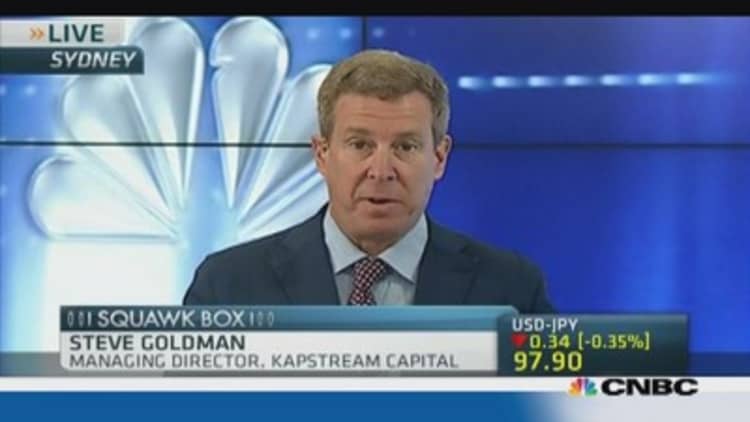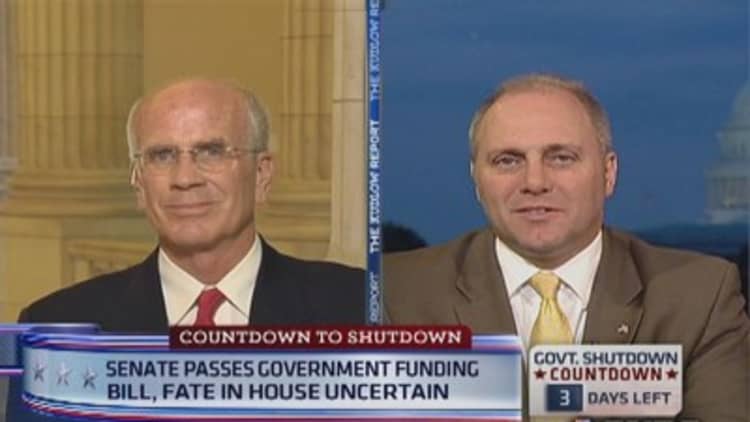The risk of a delay to Friday's U.S. jobs release as a potential government shutdown looms could deal financial markets a huge blow, analysts say.
The U.S. Labor Department said on Friday that it would not issue the non-farm payrolls report this week if the government is shutdown. And that prospect is looking more likely after U.S. lawmakers failed to reach an agreement at the weekend over the federal budget ahead of the October 1 deadline.
The non-farm payrolls report, a snapshot of employment conditions in the world's largest economy, is widely seen as the most important U.S. economic indicator.
(Read more: US government shutdown: How will markets react?)
"It certainly would be a huge event if we didn't see a payrolls report on Friday," Paul Bloxham, HSBC's chief economist for Australia and New Zealand, told CNBC Asia's "Squawk Box."
"That would be enormous – missing out on one of the key economic indicators in terms of the U.S. at the moment and guidance on the Federal Reserve and tapering, which is a key part of what we are all watching right now," he added.
(Read more: US budget uncertainty may limit gold's decline)
The Fed took markets by surprise earlier this month by opting to maintain its $85 billion-a-month asset purchase program.

It is expected to start scaling back its massive monetary stimulus as the U.S. economy recovers and the payrolls data is seen as key to assessing when that tapering may start.
The non-farm payrolls report is scheduled for release on October 4 and economists polled by Reuters forecast the U.S. economy created 180,000 new jobs in September compared with 169,000 in August.
"The [payrolls] forecast is around 180,000 and we have seen an improvement in jobless claims, which sets up for a strong payrolls number," Lasanka Perera, managing director at Global FX Partners, said. "If we see a continued improvement in jobs, the word taper will re-enter our rhetoric."
(Read more: Wall Street uneasy in face of government shutdown)
Analysts said that while they don't expect a government shutdown to have a lasting impact on financial markets, the risk of a delay in the payrolls number could add to the uncertainty that has undermined U.S. stocks markets over the past week and helped send the dollar to a one-month low against the yen.

The payrolls number is released on the first Friday of every month. In January 1996, the release of the December 1995 jobs number was delayed by two weeks due to a government shutdown that lasted from mid-December to early January and a blizzard that shut down the capital city for a few days.
The S&P 500 fell in the first week of 1996 and started a recovery on January 10, just after the government shutdown ended.
Delay unlikely?
Analysts said that they believed the release of the payrolls data was unlikely to be delayed, even if a government shutdown were to take place, given the importance of the numbers.
Steve Goldman, managing director at Kapstream Capital, told CNBC the risk of a data leak was another reason to expect the payrolls number to be released on time.
"If they [the government] don't [release the jobs report], there is a big risk the data gets out anyway because some people will have the information," he said.
"And the idea that some people have the number and you haven't released it to the market creates big risks for the market in terms of insider knowledge," he added.
—By CNBC.Com's Dhara Ranasinghe; Follow her on Twitter @DharaCNBC


